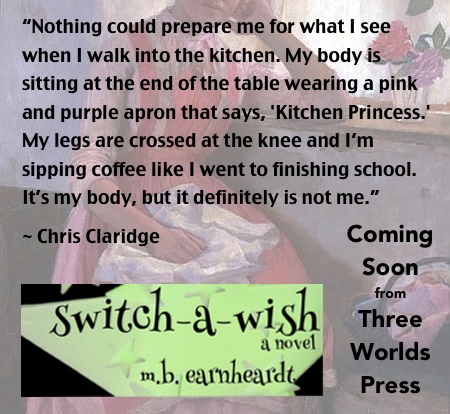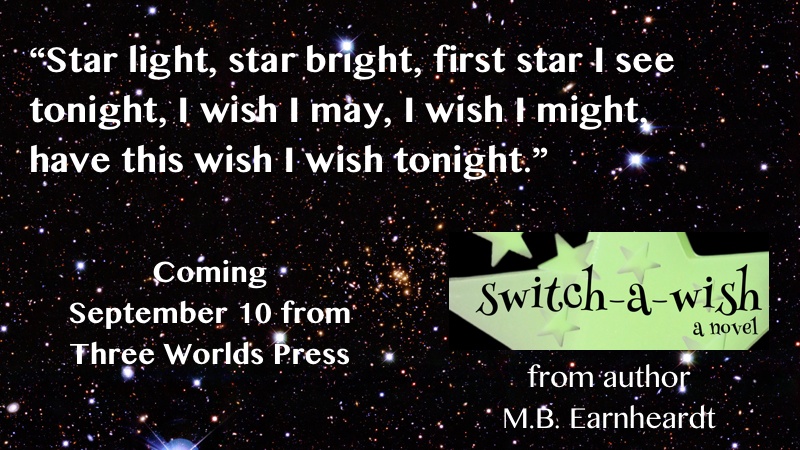When I was a little girl, there was a lot to do, but it usually didn’t involve television or Barbie dolls.
My grandfather bought our family farm about 40 years before I was born. But by the time I was growing up in the house my dad built on the property, there wasn’t much “farming” going on. We were still raising chickens and turkeys, and there was a cow to milk for about my first ten years. The garden covered an acre and it provided us with vegetables to eat during the long winters.
The location was so rural that it took a good 15 minutes to get to a small town with a grocery store. I spent the majority of my time wandering around the hillside dancing and picking wild strawberries; exploring the remains of barns, greenhouses, garages and sheds; and catching crayfish in the creek.
It was a great childhood, especially in the warm months. When winter set in, my world became much smaller. The big cable companies had decided that the farm was too remote to make it cost effective to provide services, so we were limited to only a few broadcast television stations. My friends had everything (I was especially jealous of MTV), but I was at the mercy of NBC, CBS, PBS (and FOX when they entered the market in my early teens).
It seemed like a cruel joke when I was small, but the lack of television (and proximity to other children) forced me to explore the world in different ways. My favorite way to spend those long winter days was curled up with a book. I learned from the example set by my mother and her sisters and I turned to the large collection of books they had acquired as a way to ease my boredom.
I was an early reader because my aunts and my grandmother read to me. I had explored the world of Laura Ingalls Wilder and Louisa May Alcott before I even started Kindergarten. But, it was the Anne of Green Gables books (the all-time favorite of all the women in my family) that marked my passage from listener to reader. After that I consumed everything I could find. I read Harlequin Romances by the bucket load, and I peppered in all the Classics that were available to me as a set of gray and red readers.
As I grew I went to the used bookstore and spent everything I had on teen novels, horror, biographies and true crime. If a beloved English teacher said the name of a book in class, I went home and told my supportive father that he had to purchase it because it was required reading. I read books, then magazines, then newspapers. I needed the daily format to keep up with my pace.
Because I started so early, books and writing were always an important part of my life. In school, the books were more of the text variety. Not the most engaging, but still loaded with words, so all right with me. I’ve never slowed.
It was this rich relationship with reading that made me believe I could write a piece of fiction. I’ve written news stories and academic articles, and even a very detailed dissertation, but writing fiction presented a new challenge. Even as I was writing (before a single person even knew what I was up to), I felt exposed. Giving a voice to creativity required me to turn off the part of my brain that looks on to judge everything I do, and instead embrace my willingness to put myself out there and be vulnerable.
Writing Switch-A-Wish was enjoyable and scary. I’ve tried to tell a story that I think will resonate with readers regardless of where they are in life—married or not, with or without kids, young or old, women and men. This story will make readers look at their relationships, romantic or otherwise, in different ways.
My grandfather bought our family farm about 40 years before I was born. But by the time I was growing up in the house my dad built on the property, there wasn’t much “farming” going on. We were still raising chickens and turkeys, and there was a cow to milk for about my first ten years. The garden covered an acre and it provided us with vegetables to eat during the long winters.
The location was so rural that it took a good 15 minutes to get to a small town with a grocery store. I spent the majority of my time wandering around the hillside dancing and picking wild strawberries; exploring the remains of barns, greenhouses, garages and sheds; and catching crayfish in the creek.
It was a great childhood, especially in the warm months. When winter set in, my world became much smaller. The big cable companies had decided that the farm was too remote to make it cost effective to provide services, so we were limited to only a few broadcast television stations. My friends had everything (I was especially jealous of MTV), but I was at the mercy of NBC, CBS, PBS (and FOX when they entered the market in my early teens).
It seemed like a cruel joke when I was small, but the lack of television (and proximity to other children) forced me to explore the world in different ways. My favorite way to spend those long winter days was curled up with a book. I learned from the example set by my mother and her sisters and I turned to the large collection of books they had acquired as a way to ease my boredom.
I was an early reader because my aunts and my grandmother read to me. I had explored the world of Laura Ingalls Wilder and Louisa May Alcott before I even started Kindergarten. But, it was the Anne of Green Gables books (the all-time favorite of all the women in my family) that marked my passage from listener to reader. After that I consumed everything I could find. I read Harlequin Romances by the bucket load, and I peppered in all the Classics that were available to me as a set of gray and red readers.
As I grew I went to the used bookstore and spent everything I had on teen novels, horror, biographies and true crime. If a beloved English teacher said the name of a book in class, I went home and told my supportive father that he had to purchase it because it was required reading. I read books, then magazines, then newspapers. I needed the daily format to keep up with my pace.
Because I started so early, books and writing were always an important part of my life. In school, the books were more of the text variety. Not the most engaging, but still loaded with words, so all right with me. I’ve never slowed.
It was this rich relationship with reading that made me believe I could write a piece of fiction. I’ve written news stories and academic articles, and even a very detailed dissertation, but writing fiction presented a new challenge. Even as I was writing (before a single person even knew what I was up to), I felt exposed. Giving a voice to creativity required me to turn off the part of my brain that looks on to judge everything I do, and instead embrace my willingness to put myself out there and be vulnerable.
Writing Switch-A-Wish was enjoyable and scary. I’ve tried to tell a story that I think will resonate with readers regardless of where they are in life—married or not, with or without kids, young or old, women and men. This story will make readers look at their relationships, romantic or otherwise, in different ways.


 RSS Feed
RSS Feed
